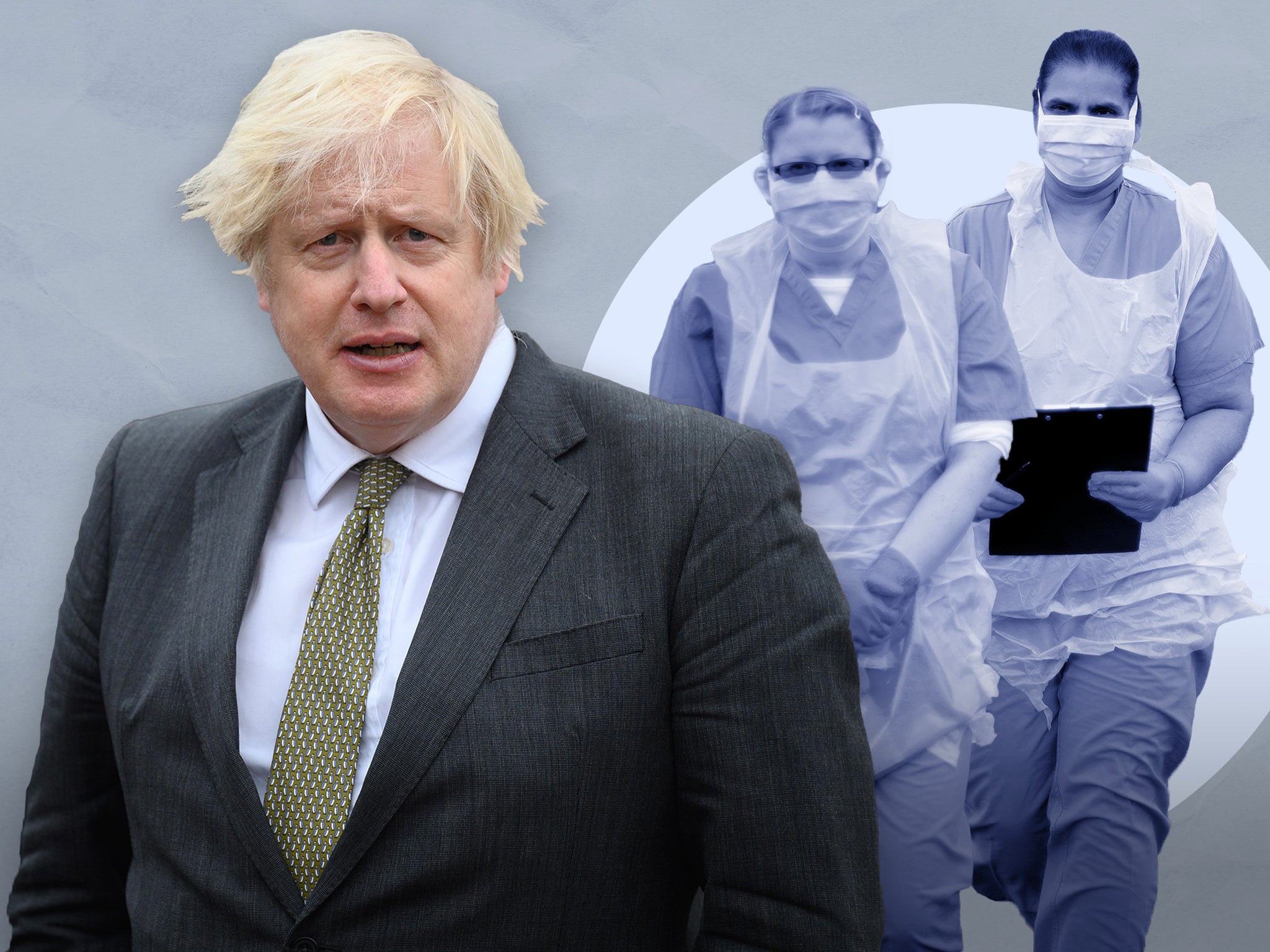The Covid PPE ‘VIP lane’ judgment is bad – but not as damaging for the government as you think
The ruling suggests that one of the most criticised aspects of the government’s early response to the crisis was obviously flawed, but not quite as disastrous as is sometimes claimed, writes Sean O’Grady


Were it not for the admittedly bombshell stories about the prime minister admitting to attending a lockdown-busting party and the legal case involving Prince Andrew, the declaration that a central part of the government’s Covid-19 response was actually illegal (and worse) would be dominating the headlines.
Not quite a good day to bury bad news, more a case of bad news eclipsing even worse news for No 10. It’s big, though.
So not only was the government's use of a “VIP lane” to award contracts for personal protective equipment (PPE) to two companies part of a culture of cronyism, as the critics say, but it was actually unlawful, according to the High Court.
This was a system whereby contracts for provision of personal protective equipment, ventilators and other urgently needed kit for hospitals could be fast-tracked in the event of an emergency. The idea was to cut through the usual cumbersome, slow procurement process, which would simply take too long, and could therefore cost lives. Legal issues were brushed aside in the name of public health. The assumption was that ministers and MPs would use their contacts and good judgment to put forward novel, fleet-footed solutions – the “VIP lane”.
The only scrap of good news in the finding was that, in the case of the two named companies, the judge found that although it was unlawful for government to offer them preferential treatment, both companies were likely to have been given contracts anyway. It’s a rare piece of relatively good news for Matt Hancock, the health secretary at the time, who was accused of abusing the system (something he has denied).
The judge, Ms Justice O’Farrell, said the Department of Health’s evidence “establishes that presence on the high priority lane did not confer any advantage at the decision-making stage of the process”, but she said it was clear that “offers that were introduced through the senior referrers received earlier consideration at the outset of the process”.
She said the high-priority-lane team was better resourced, and able to respond more quickly to offers, but she also found “sufficient financial due diligence” was carried out in respect of both sets of contracts.
A spokesperson for Matt Hancock made the most of the ruling: “As the National Audit Office has confirmed, ministers had no involvement in procurement decisions or contract management.
“The department was doing the best it possibly could within the rules to respond to an unprecedented situation, and crucially, the court has rightly found that action was justified and absolutely no rectification or further action is necessary.”
A court previously ruled that Mr Hancock had acted unlawfully when his department did not reveal details of contracts it had signed during the Covid pandemic.
Politically, more broadly, it suggests that one of the most criticised aspects of the government’s early response to the Covid crisis wasn’t as flawed or disastrous as is sometimes claimed, although the shortages of equipment were real, acute, and may have cost lives. When the public inquiry eventually gets under way and gets round to the great contracts issue, and the potential for corruption, the legal case suggests that ministers, MPs and others involved have less to fear than their opponents make out.
It is also potentially inconvenient for Labour’s strategy of portraying the government as having wasted billions of pounds during the Covid crisis, a theme the shadow chancellor, Rachel Reeves, has been pursuing to some extent.
It’s important for Labour because of the public perception, justified or not, that the Conservatives are more competent on running the economy and public finances. Angela Rayner, as deputy leader, is pressing on with the attack, and has called for an independent investigation to “get to the bottom of how £3.5bn of taxpayers’ cash was handed out in crony contracts and ensure it can never happen again”.






Join our commenting forum
Join thought-provoking conversations, follow other Independent readers and see their replies
Comments